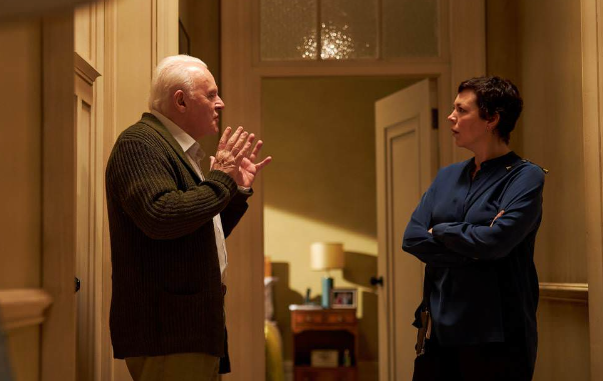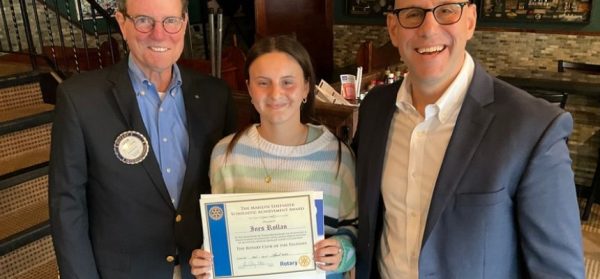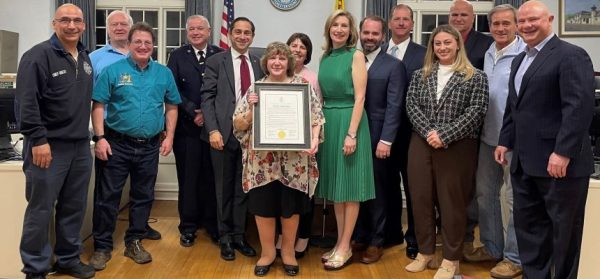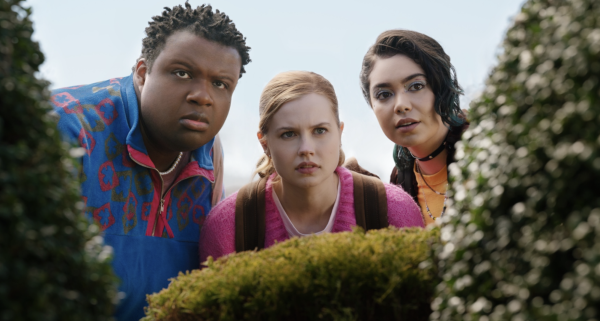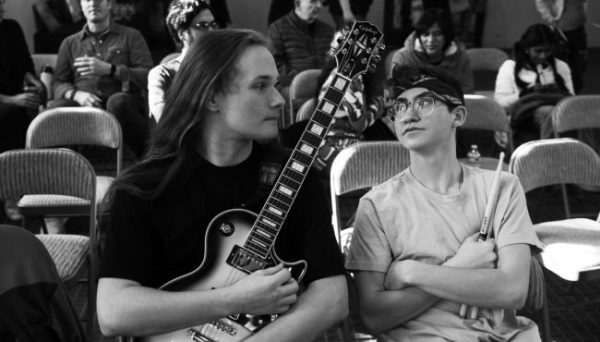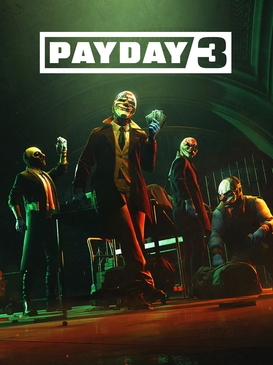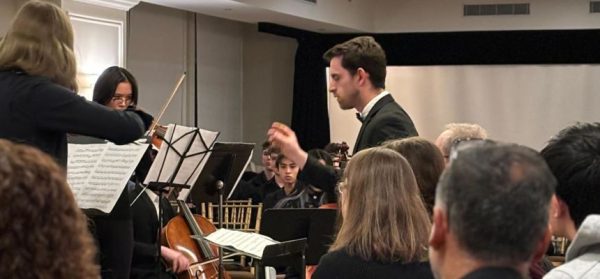‘The Father’ crafts a disturbing depiction of dementia’s suffocating grip
Let’s face it: we, as part of Western society, do not always treat the old people in our lives with the respect they deserve. That’s not to say we don’t love them or care about them — of course we do, but even in our most well-intentioned attempts to express that love, we often find ourselves treating them more like small children than our elders. It seems like we never truly understand them until we are them, and by that point, well, it might be too late. We have sympathy for them, but it is impossible for us to have empathy — and so this cycle continues.
I don’t mean to scare you with this argument, nor do I want to make you feel guilty. I don’t claim to be any sort of authority on this subject. I bring it up because as I watched “The Father” and saw Anthony Hopkins’s character attempt to navigate a world so disorienting, so full of chaos and confusion that illusion and reality became virtually indistinguishable, I kept coming back to this idea because, for the first time, I experienced everything from someone like Anthony’s (our octogenarian protagonist) perspective.
Due to Florian Zeller’s unconventionally brilliant screenplay and direction, every detail — every character, line, and set piece — could only be viewed through Anthony’s unreliable, very subjective lens. As an audience member, I was only shown what he noticed — or, perhaps more importantly, failed to notice.
As if this portrayal of Anthony’s condition was not already jarring enough, it gets compounded by the behavior of the other characters in the film towards him, namely his daughter Anne (Olivia Colman) and her husband Paul (Rufus Sewell). As we see Anthony struggle to reckon with the effects of his condition, we also see firsthand just how ill-equipped others are to deal with him.
Every time he forgets a detail — like whether Anne is divorced or not, whether she is staying in London or moving to Paris, or even whether an entire conversation had already occurred — Anne and Paul just seem concerned. They do not believe him even when he insists that he had just heard them tell him something — but of course the audience believes him because we only get to witness his account. This dynamic between the audience, Anthony, and everyone else is the main reason why this movie is so frustratingly brilliant.
Naturally, as Anthony’s condition gets progressively worse throughout the film, so does the frequency and intensity of Zeller’s sleight-of-hand character/set piece swaps. In fact, these swaps became so disorienting that I found myself having to pause the film every few minutes within the last half hour just to process the events taking place. Some of the more intense ones even caused me to audibly react.
While similar devices have certainly been used before in screen and stage productions, they are often done merely for show or comedic purposes — in “The Father,” I found it to be one of the more effective tools I’ve ever seen used in a film to elicit an emotional response from the audience. The use of such a device for dramatic effect becomes even more impressive when you consider that Anthony’s entire world consists of his apartment alone, and yet even in a limited space, Zeller manages to make everything seem so distorted.
While Zeller’s screenplay is compelling and his direction is innovative and gripping, Hopkins’ acting is the proverbial cherry on top, taking this film to the next level. Hopkins portrays Anthony as a man who, rather than succumb to his condition, tries (unsuccessfully) to combat it. Hopkins’ small physical frame, slow, frail movements, and typically calm, charming demeanor is contrasted beautifully by his sudden outbursts, which often occur when he feels frightened, isolated, or misunderstood — often all at once.
Playing a tragic character, especially one who has lost all control over his life, is certainly not out of the ordinary for Hopkins, but unlike King Lear or Hannibal Lecter, the character of Anthony is so real, so human, that it is all the more depressing when we see the challenges he faces. Moreover, we never get to see who he was before he got dementia — only what has become of him.
“The Father” excels in most, if not all aspects of filmmaking. If you can handle serious themes, watch it.
Grade: A
Vikram Jallepalli is a senior at Pelham Memorial High School. Writing for the Examiner is his first role in journalism. He performs in Sock’n’Buskin...



